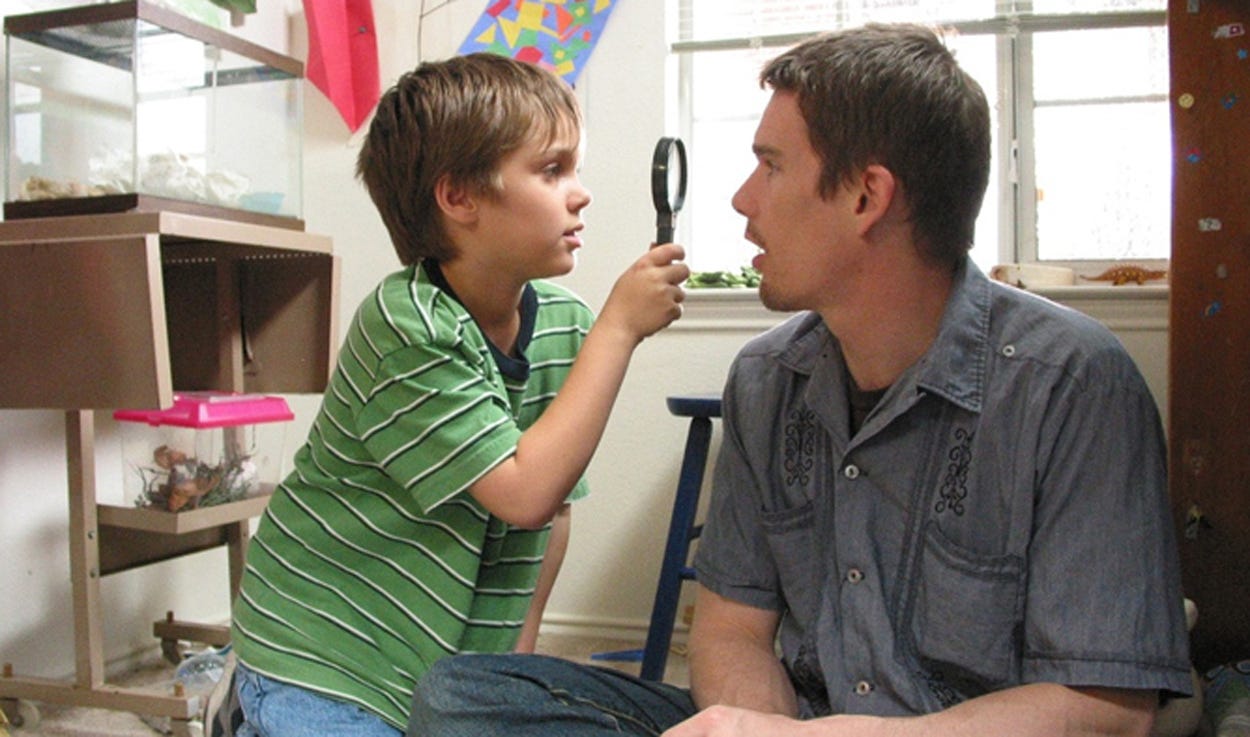Beastly Reviews: Boyhood
Linklater’s twelve-year film project delivers a rare portrait of growing up.
I’m Alexander Cheves, and this is LOVE, BEASTLY—a blog about sex, feelings, and manhood. It’s written mostly for men—gay, straight, bi, MSM, or just curious—but some readers are women, and some don’t fit into categories. Everyone’s welcome here.
This is Beastly Reviews, where I write about films that made me feel something.
These posts are free to read. Subscribe to unlock essays, advice, and more personal work.
You've never seen a film like Boyhood. No one has, and I doubt anyone will again. Richard Linklater's new film is both a coming-of-age story and a soaring cinematic experiment.
The film took twelve years to make. The same actors play the same roles, ageing naturally on screen.
Mirroring the piecemeal way the film was shot, Linklater weaves a narrative that feels somewhat like a string of home video recordings thrown together. We follow one boy, Mason, from the age of five to eighteen. With no voice-over narration, we are simply observers watching him grow.
Interestingly, the original actors cast when the film started shooting have not been seen on the big screen in a while (it’s a nice return for Ethan Hawke). Even the picture quality changes—film technology has advanced since the project started—and the editing style of the film's second half differs from that of the first.
I feared the whole thing would be too caught up in what it's trying to be to have a resonating impact. I was wrong. Mason, played by actor Ellar Coltrane for twelve years, grows into a sensitive, artistic, and detached boy on the cusp of manhood. We follow him through his growth into a sensitive, misunderstood teenager.
The most dynamic character of the film is Mason's mother, played powerfully by Patricia Arquette, who deserves an Oscar nod for the role.
In his teens, when the film closes, Mason's sexual orientation seems ambiguous. We assume he's straight, or at least bisexual, until some parting looks and purple nail polish challenge that. The boy grows into a young man, wiry and intense. The film avoids classifying him as gay or straight and instead focuses on his disillusionment, his distance from his family, and his desire to escape.
Yes, there are imperfections. It's hard to get believable performances from child actors. In Mason's early teenage years, several of his friends are preteen caricatures, and the film loses some of its momentum. But Boyhood eventually succeeds as an intimate study of change, an experiment I thoroughly enjoyed watching unfold. It shows not only how a character can grow, but how an actor can, too—how an actor can get better (or worse) at their craft as they evolve with a character in real-time.
By the end, the characters are fully embodied—the actors have had more than a decade to inhabit them. No one feels underdeveloped or lost. The ageing is real, not makeup. Boyhood is a feat of filmmaking that manages to preserve its heart and emotional pull throughout.
Love, Beastly


